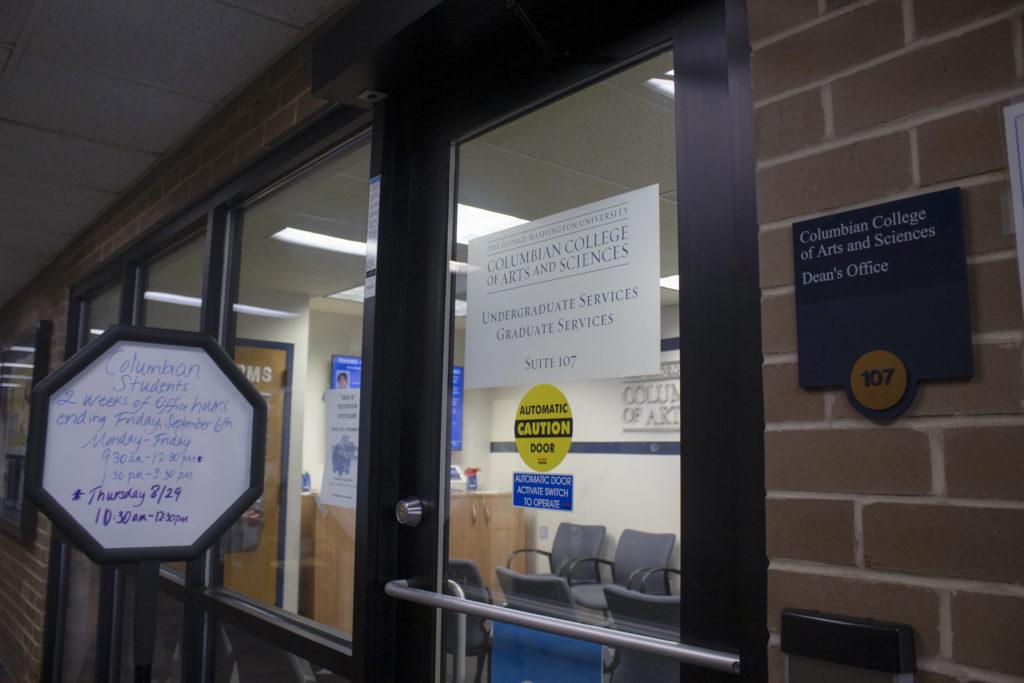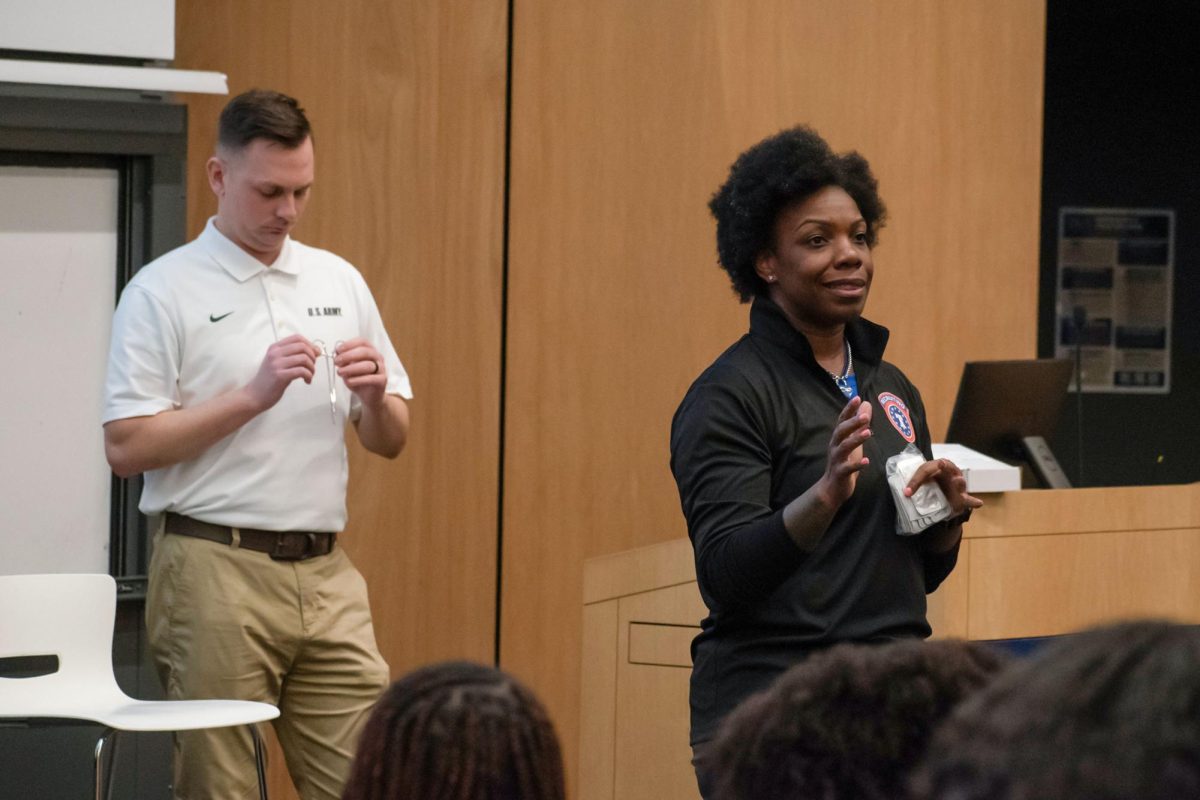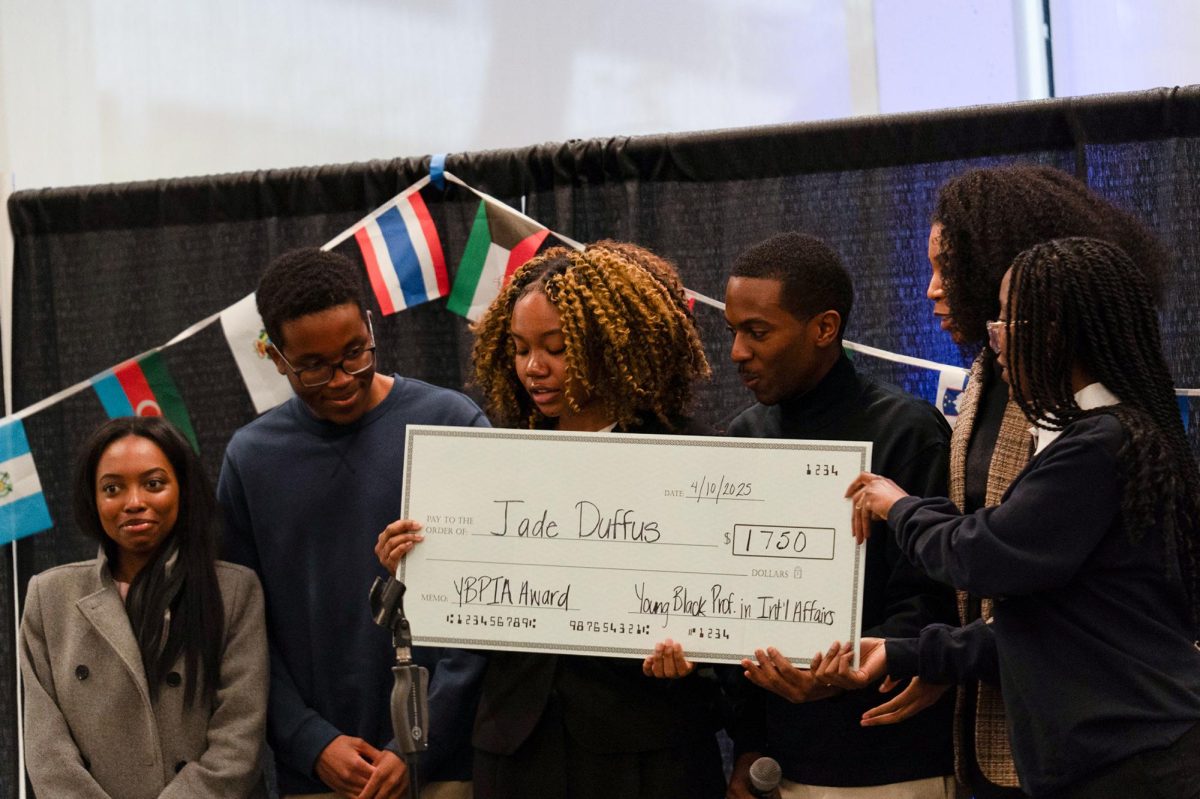When officials announced the fall semester would go online, incoming freshman Ilaria Montecourt considered moving to D.C. with her roommates and taking classes remotely.
But she said she felt conflicted about moving somewhere new during an ongoing pandemic, and she didn’t want to begin her college experience from home without being able to socialize in person. Montecourt said she ultimately decided to defer her enrollment for the academic year and spend the time interning at a technology start-up company in San Francisco that teaches mindfulness.
“I can defer and then get a typical freshman experience that people are missing out on this year,” she said. “It’s not going to be the same in the spring anyways, even if we did go.”
Montecourt is one of more than 10 students who did not tune into Blackboard Collaborate and Zoom last week, choosing to defer enrollment or take a leave of absence while their peers take classes online. Students said they chose to attend GW because of the available internships and events offered in D.C., which would not have been the same had they stayed enrolled this semester.
Students who apply for continuous enrollment continue their studies elsewhere and may transfer up to nine general credits at another school, according to the Columbian College of Arts and Sciences advising website. Students who take a leave of absence take a “leave” from the University and do not study during that time, the website states.
University spokesperson Crystal Nosal said the number of students deferring admission this fall coincides with a national trend at other universities conducting distance learning this semester. She said officials won’t have finalized numbers of how many students deferred until October.
A May Carnegie Dartlet survey of 2,800 high school seniors said the later an institution announces its policy, the more apprehension students would have about it. Thirty-three percent of high school seniors surveyed said they would defer or cancel an admission offer depending on their college’s reopening decision, according to the survey.
“Like many other universities with a significant population of international students and mostly online classes, the number of students deferring admission this fall is more than usual,” Nosal said in an email. “GW is making every effort to support the enrollment of all new admits and returning students.”
Continuous enrollment
Two students said they decided to take courses at their local community colleges as continuous enrollment students, citing concerns about finances and being unable to live in D.C. Both students said they will continue taking classes at their local community college if GW remains online in the spring.
Sophomore Sam Weinerman, a political science major taking courses at County College of Morris in Randolph, New Jersey, said he applied for continuous enrollment as soon as officials announced fall classes were going online in July. He said he saw no purpose in paying tuition for the semester if he was not going to receive the same access to professional opportunities and networking events that led him to choose to attend GW.
He said he is taking a constitutional law class to count toward his major during the fall and is working full time at his parents’ grocery store.
“A lot of the reason people go to GW is for the Washington, D.C. experience, and it’s just not the same having to take those classes from home on a computer,” Weinerman said.
Taking a step back
Nine students interviewed said they are deferring or taking a leave of absence for the semester because of concerns with academically succeeding in their classes and missing out on experiencing GW’s social aspects in person. Students said they’ve decided to pursue internships and other work opportunities for the fall.
Yvonne Liccione, a sophomore majoring in political communication who lives in Waxhaw, North Carolina, said she chose GW for the School of Media and Public Affairs’ political communication program, which presents opportunities to learn from professionals in her field.
Having joined the campaign for Rep. Andy Kim, D-N.J., and writing for Students for Sensible Drug Prevention, an independent magazine on drug prevention, Liccione said she felt more passionate about working on her projects than navigating virtual learning, which led her to take a leave of absence.
“I know I don’t succeed in online classes, I don’t care enough to do them,” Liccione said. “Quite frankly, if I care about something, I do it 140 percent, but online classes, you can’t make me care.”
Sarah Ahmed, an incoming freshman majoring in economics who deferred her acceptance until the spring, said she did not want to miss out on living in D.C. throughout her four years of college. She said is happy to be saving a semester’s worth of tuition and working as a homeschooling teacher this fall.
“Paying even the 10 percent tuition discount honestly doesn’t do that much,” Ahmed said. “It’s a great education nevertheless. But I don’t think that it’s worth $26,000 for one semester of ‘Zoom university.’”








